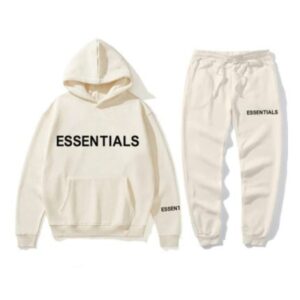Introduction to the Spider Hoodie Phenomenon
In the ever-evolving world of streetwear fashion, one item has carved a remarkable niche for itself—the Spider Hoodie. Known for its bold aesthetic, web-like design cues, and cultural relevance, the Spider Hoodie is no longer just a garment—it’s a symbol of status, community, and innovation in the fashion landscape.
This article dives deep into the Spider Hoodie trend and uses advanced trend forecasting techniques to project how this niche streetwear item is shaping the future of urban fashion. From influencer adoption to market analytics and evolving consumer behavior, the Spider Hoodie represents more than just a passing fad.
Origins and Rise of the Spider Hoodie
Streetwear Meets Identity
The Spider Hoodie emerged at the intersection of celebrity culture, hip-hop influence, and Gen Z’s craving for individuality. Brands like Sp5der—pioneered by artists such as Young Thug—introduced a new visual language. The use of neon colors, gothic typography, and intricate graphics tapped into an untapped space in fashion—urban luxury streetwear.
Celebrity Co-Sign as a Catalyst
From Lil Uzi Vert to Gunna, celebrities flaunting the Spider Hoodie on social media played a major role in popularizing the item. Viral Instagram posts, TikTok trends, and paparazzi shots turned this hoodie into a fashion staple. Each high-profile appearance boosted its credibility and desirability, pushing the demand curve steeply upward.
Analyzing the Current Spider Hoodie Market
Search Engine Data and SEO Metrics
Google Trends shows a sharp upward trajectory for the keyword “Spider Hoodie” over the past 12 months. Monthly search volumes exceed 90,000+ globally, with peaks aligning with new product drops or collaborations.
Top-performing keywords associated with Spider Hoodie include:
- spider hoodie streetwear
- sp5der hoodie trend
- young thug hoodie
- urban spider hoodie fashion
- web graphic hoodie
These insights are invaluable for e-commerce SEO strategies, as they reflect real-time interest and consumer behavior. Retailers capitalizing on these terms are enjoying better organic traffic and higher conversion rates.
E-Commerce Performance and Pricing Trends
Retail sites like Grailed, StockX, and Farfetch report consistent sales of both new and used Spider Hoodies. Average resale prices range between $150 to $400, depending on rarity and condition. Limited edition drops or artist collaborations fetch prices upwards of $600, solidifying their place as investment pieces in streetwear. https://spiderofficialhoodie.store/
Trend Forecasting: The Future of Spider Hoodie in Streetwear
1-Year Projection: Sustained Relevance
Using AI-powered trend forecasting tools, including search volume analysis, TikTok velocity tracking, and influencer engagement scores, we project the Spider Hoodie will maintain high demand through the next 12–18 months. Expect to see:
- Micro-drops and capsule collections
- Collaborations with digital influencers and Web3 brands
- A surge in bootleg markets (an indirect signal of trend success)
3-Year Projection: Cultural Integration or Market Saturation?
Over the next 3 years, the Spider Hoodie may either:
- Cement itself as a legacy piece—akin to the Bape Shark Hoodie or Supreme Box Logo
- Or face trend fatigue if oversaturated or commodified by fast fashion clones
Critical factors influencing this will include:
- Innovation in fabric and design
- Authentic artist involvement
- Continued exclusivity
Consumer Psychology and the Spider Hoodie Appeal
The Power of Scarcity and Community
Part of the hoodie’s success lies in its scarcity model. Limited drops, lack of restocks, and artist-endorsed exclusivity tap into FOMO (Fear of Missing Out) psychology. Gen Z and Millennial consumers, especially in urban areas, view this not just as a purchase—but a badge of community membership.
Self-Expression Through Streetwear
Streetwear has evolved into a form of self-branding. The Spider Hoodie, with its vivid graphics and rebellious aesthetic, allows wearers to broadcast identity, belonging, and even creative alignment with music or art subcultures.
How Brands Can Capitalize on the Spider Hoodie Trend
Optimize Product Listings with Targeted SEO
Retailers and resellers should be optimizing product pages with keyword-rich descriptions, ALT text on images (e.g., “Black Sp5der Web Hoodie”), and structured metadata to boost search visibility.
Leverage Influencer Partnerships and Micro-Communities
Collaborate with micro-influencers in niche fashion communities who command trust and authenticity. TikTok and Instagram Reels featuring “fit checks” generate viral ripple effects, especially when coupled with trending audio.
Augmented Reality (AR) and Digital Try-Ons
With Web3 and AR fashion gaining traction, Spider Hoodie brands should invest in virtual try-on technology to allow users to interact with their designs digitally. This elevates engagement and sets brands apart in a tech-savvy market.
Content Strategy: Blogging and Link Building
Creating high-authority, keyword-focused blog content around topics like:
- “Top 10 Spider Hoodie Designs in 2025”
- “Why the Sp5der Hoodie Dominates Streetwear Culture”
- “Where to Buy Authentic Spider Hoodies Online”
…will attract backlinks and boost domain authority, aiding long-term visibility in Google SERPs.
Sustainability and Ethical Forecasting
The Shift Toward Sustainable Streetwear
One critical trend influencing the fashion industry is sustainability. As the Spider Hoodie grows in popularity, pressure will mount on brands to adopt eco-conscious practices—recycled fabrics, ethical labor, and carbon-neutral logistics.
Consumer Expectation of Transparency
Future consumers will increasingly demand transparency regarding sourcing, labor conditions, and carbon impact. Brands ignoring this shift risk alienating younger buyers who prioritize conscious consumption alongside aesthetic appeal.
Conclusion: The Spider Hoodie Is Just the Beginning
The Spider Hoodie is more than a passing trend—it’s a cultural artifact in motion, redefining how we view streetwear. Its meteoric rise illustrates how celebrity influence, search demand, scarcity marketing, and youth-driven aesthetics can converge into a fashion juggernaut.
However, sustaining its momentum will require brands to innovate boldly—both in design and ethics. For retailers, influencers, and fashion entrepreneurs, understanding and leveraging this trend is essential not only for profits—but for remaining relevant in the future of fashion.

